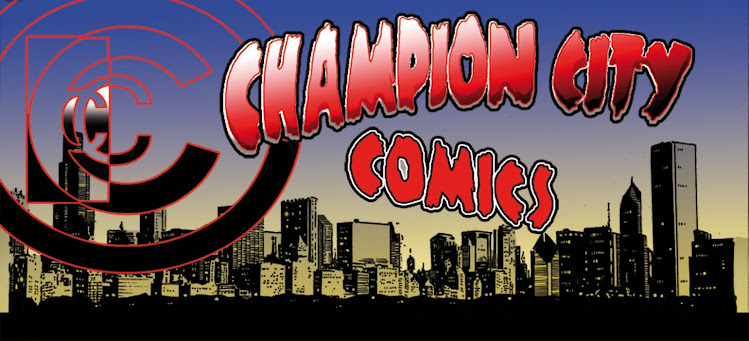My first blog entry titled 'A Fine Line Between Stupid and Clever' discussed basic problems with development ideas for your webcomic. This second article will examine the length of your work and the time it will take to be completed because writers have an idea for a comic book, graphic novel, or webcomic, but create an unrealistic goal for completion.
I've had comic book ideas sent to me from aspiring writers who have proposals for comics that will span over 200 pages over ten, twelve, or sixteen issues. Why is this an issue? In my opinion, a failure to understand the basic concepts of developing a comic book or webcomic using the do-it-yourself philosophy is problematic.
Writers have informed me that they have a twelve or sixteen issue proposal for me to review. Although they want to produce a comic book, they are willing to have it posted to Champion City Comics as a webcomic to seek input from readers or to gain interest from publishers. Nearly 100% of those writers will be searching for an artist to collaborate with on their project. An estimated 99% of those writers never submit a single page of completed work to be posted. So what's the problem? The artist or the writer? Let's examine the writer.
A common mistake is that writers come up with grandiose ideas for their work. They are under the impression that an artist will work for free to knock out an issue per month and in the end they will be famous or at least offered a job with a publisher. You may think I'm exaggerating but those people are out there. No matter what advice I give them, they don't listen.
Let's say you have twelve issues of a comic book series written. If you do not have the artistic skill to do it yourself and do not have the resources to pay someone, then there is a very high chance that you'll barely get one issue completed. In rare cases, we see this happen. Great scripts have come my way and I've been able to put a writer and artist together. However, the project ends after the artist takes five months to complete half a page. The writer is angry and goes back to square one.
When I started writing, I had a six issue comic book series titled The Champion City Fire all laid out. I had no artistic ability and did not have the financial resources to pay a skilled artist. Joe Haemmerle decided to collaborate with for free because he was my cousin and he was willing to help me out because he believed in the project. But the reality was Joe was going to college and had a full-time job which meant he did not always have the free time to work on The Champion City Fire. One year into our collaboration, we had four completed pages. I thought we'd have twenty two pages knocked out in a month or two. The experience was definitely an eye-opener.
Within a year, I decided to take our work online and develop a webcomic. I thought creating a blog about my experience developing a comic book would be fun. The blog became Champion City Comics in 2009, but I then decided to work on other webcomics projects and create a webcomics community. Within six months, I had developed two webcomics titled The End of Paradise and Westwood. Instead of writing ten comic book scripts for each title, I decided to work with each artist to see how many pages they could produce per month. A. Kaviraj, the artist for The End of Paradise, could produce three pages per week while Victor Pozzi, the artist for Westwood, could produce two to four pages per month. By the end of 2010, I had my first issue of Westwood completed while The End of Paradise turned into a 130 page tour de force. On a side note, A. Kaviraj produces one to two pages per day.
It may take a year for a project to be completed but most importantly, do not give up because the waiting is the hardest part.
TonyDoug Wright is the owner and editor of Champion City Comics. His webcomics include Dr Death vs The Zombie, The End of Paradise, and Day 165.

Learned that lesson myself, Tony:)
ReplyDelete